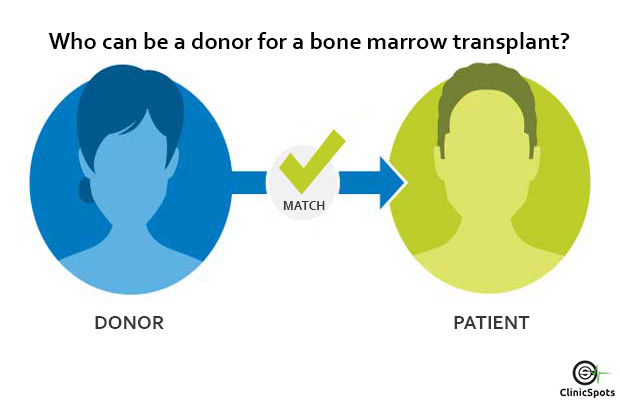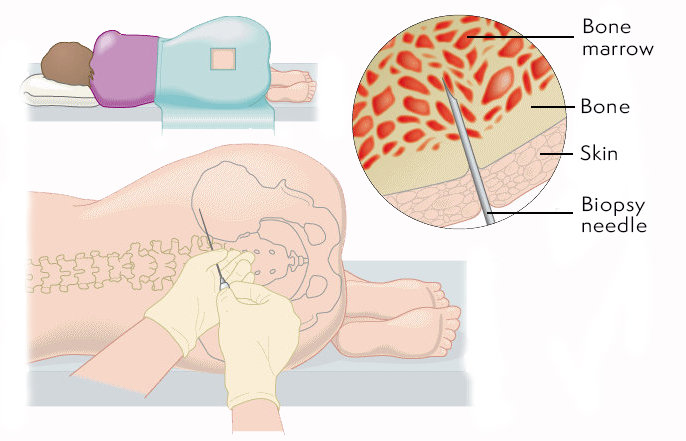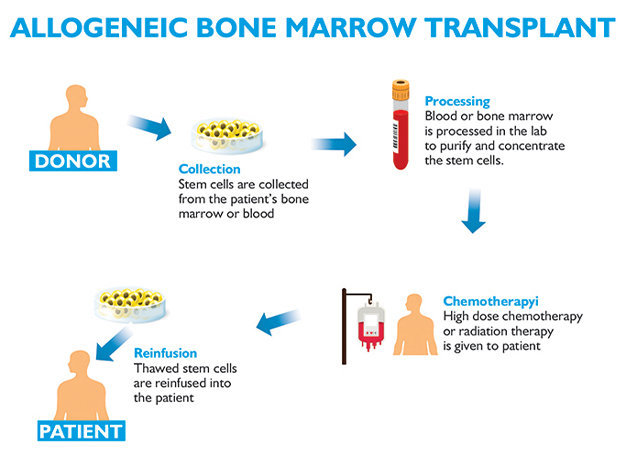Hello, my father age 64 has a tumor under his tongue measuring 0.4CM. In the report, it is described as moderate. we are looking for a treatment with the minimum side effects as possible, please suggest us best treatment and a hospital.
Answered by Pankaj Kamble
Hi Prakash, Since the tumor size is 0.4cm, the best tumor treatment with minimum side effects, is surgery. Sometimes, radiation is followed in order to prevent a recurrence. Anyway, we suggest that you quickly consult the doctor as further treatment will be suggested by your doctor. You will not require immunotherapy as it is provided in the 4th stage of cancer only.
Please find the list of best hospitals for tumor, on our page - Cancer Hospitals in India.

Pankaj Kamble
Questions & Answers on "Cancer" (367)
Related Blogs

Who can be a donor for a bone marrow transplant in India?
Are you wondering who can be a donor for Bone Marrow Transplant in India? Then you are in the right place, below is the in-depth information about it.

Bone Marrow Transplant in India: Advanced Treatment Solutions
Discover advanced bone marrow transplant options in India. Trusted specialists, state-of-the-art facilities. Find hope and healing with personalized care.

Risks and Complications of Bone Marrow Transplant in India
Here is the in-depth list of all the risks and complications involved in the bone marrow transplant.

What is the Allogeneic Bone Marrow Transplant Cost in India?
Below is in-depth information and cost on Allogeneic Bone Marrow Transplant in India along with some of the best doctors to treat it.

Dr. Sandeep Nayak - Best Oncologist in Bangalore
Dr. Sandeep Nayak - Best oncologist in Bangalore. Experience of 19 years. Consults at Fortis, MACS & Ramakrishna. To book an appointment, call @ +91-98678 76979
Cost Of Related Treatments In Country
Top Different Category Hospitals In Country
Orthopedic Hospitals in India
Heart Hospitals in India
Prostate Cancer Treatment Hospitals in India
Kidney Transplant Hospitals in India
Cosmetic And Plastic Surgery Hospitals in India
Dermatology Hospitals in India
Endocrinology Hospitals in India
Gastroenterology Hospitals in India
General Surgery Hospitals in India
Gynaecology Hospitals in India
Top Doctors In Country By Specialty
Top Cancer Hospitals in Other Cities
Cancer Hospitals in Chandigarh
Cancer Hospitals in Delhi
Cancer Hospitals in Ahmedabad
Cancer Hospitals in Mysuru
Cancer Hospitals in Bhopal
Cancer Hospitals in Mumbai
Cancer Hospitals in Pune
Cancer Hospitals in Jaipur
Cancer Hospitals in Chennai
Cancer Hospitals in Hyderabad
Cancer Hospitals in Ghaziabad
Cancer Hospitals in Kanpur
Cancer Hospitals in Lucknow
Cancer Hospitals in Kolkata
- Home >
- Questions >
- Hello, my father age 64 has a tumor under his tongue measuri...